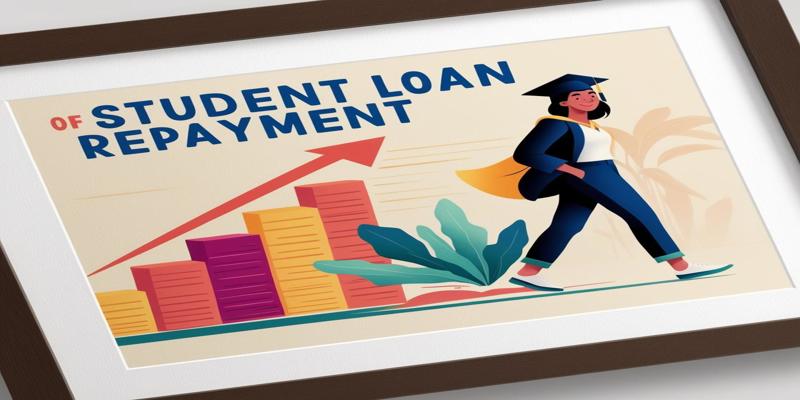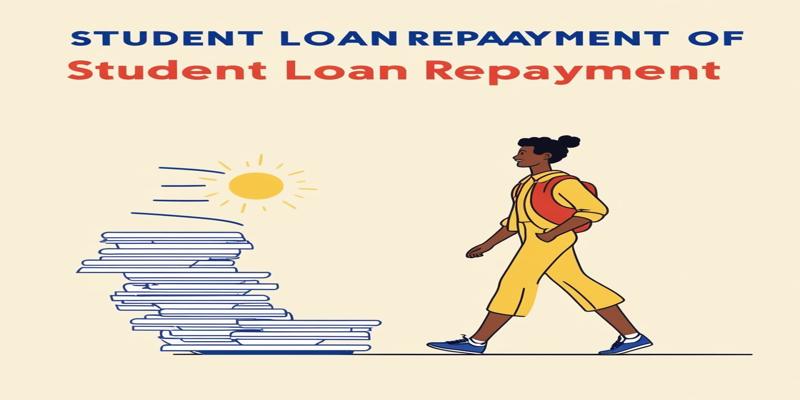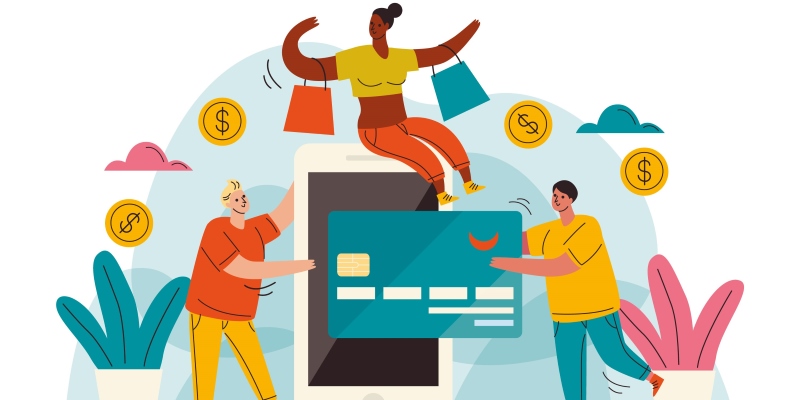3 Ways to Pay Off Student Loans Fast
Nov 18, 2024 By Darnell Malan
This could be the highest level of financial fear most Graduates will know. The average borrower generally takes around 20 years to pay their loan, and it's straightforward to maneuver through the processes and lower your financial burdens with some strategies. The following three tips will help you in managing student loan repayments ;
1. Understanding Your Loans

Before discussing various repayment strategies, it is paramount that you have an understanding of your loans, including their total amount, rate of interest, and terms. The steps to follow are therefore:
Calculate Your Total Debt
First, understand what loans you have, whether federal or private. Knowing the amount you owe helps you devise a repayment plan. You can access your federal loan information by visiting the Federal Student Aid website. In the case of private loans, check with your lender.
Knowing your total debt helps you set achievable goals and timelines for repayments. For example, the total amount will help you decide which loan to pay first if you have multiple loans at different interest rates.
Review Loan Terms
Each of those can have a different interest rate and repayment term. Understand those specifics, as they will impact how you repay them. Federal loans also often come with various repayment plans, including income-driven repayment options that lower your payments but could extend your repayment period.
For instance, the difference between having a Direct Subsidized Loan and having a Direct Unsubsidized Loan is that one will accrue interest while you are in school. Mastering these fine points enables you to make knowledgeable decisions about tackling your debt.
Explore Forgiveness Options
Your job could qualify you for student loan forgiveness programs. If you're working in public service or teaching, consider how you might qualify for programs like PSLF. Understanding these can have enormous implications for long-term financial planning.
The state also has loan forgiveness policies for certain fields, such as healthcare and education. Investigating these can give you major relief from your debt burden.
2. Creating a Repayment Strategy
Now that you know what you have in the form of loans, the next step is to figure out how you will pay them back.
Set Up Automatic Payments
Setting up automatic withdrawals from your bank account helps ensure timely payments. Many lenders extend the interest rate discount to all borrowers enrolling in autopay. You won't be burdened with a late fee, which will also make the process of paying easier. You won't have to be concerned with remembering to make a payment each month, so you can attend to other financial duties.
This automation in payment would help build a good credit history since it ensures consistent payment behavior of the borrower over a certain period.
Make Extra Payments
When possible, consider paying extra money toward your principal balance. Paying more than your scheduled minimum can significantly lower your interest costs over time and decrease the overall length of your repayment. For example, if you borrow $25,000 at an interest rate of 6.8%, increasing your monthly payment from $288 to $400 could cut your repayment period from ten years to less than seven.
That is very effective, especially if you get bonuses or tax returns, which you then put into your loans to accelerate them.
Use Windfalls Wisely
Windfalls such as tax refunds or any form of bonus can be used to repay a loan. This one-time payment will significantly reduce the loan's principal amount and eventually save you from the interest, which is paid over time.
Consider setting aside one or two future raises or bonuses for extra loan payments. This proactive approach has you regularly moving on, reducing your debt without intruding on your present lifestyle.
3. Budgeting for Repayment

The backbone behind any financial management is creating a budget; student loan payments are no exception.
Track Your Expenses
First, track all your monthly expenses to understand where your money goes. That way, you will be able to know exactly where you may cut back to free up more money for your student loans. Budgeting apps and spreadsheets make this easier by giving one crystal-clear visibility into their spending habits.
Create a Debt Repayment Plan
Having a clear vision of your finances, devise a plan for repaying debt first, targeting those loans with higher interest, popularly known as the avalanche method. You can also start with smaller debts for psychological wins, now popularly called the snowball method. Both methods can be effective; thus, choose one that suits your financial goals better.
For example, if paying smaller debts motivates and encourages you, start with them, even when those debts carry lower interest rates.
Consider Refinancing
You may want to consider refinancing if you have a good credit score and stable income. You will have a chance of getting a lower interest rate or changing the loan term and being able to afford it monthly. But here is something to consider: you will be giving up some benefits by refinancing federal loans, meaning you give up income-driven repayment and forgiveness.
Pitted against the negatives, this decision should carefully be weighed against those, possibly with the benefit of a financial advisor, to make sure this is a move that makes sense for your long-term goals.
Conclusion
Repaying student loans effectively demands planning well in advance and active management. Once you understand your loans, create an effective repayment strategy, and budget wisely, you can take control of your student debt and work for financial freedom.

ACH vs. Wire Transfers: What's the Difference?

10 Cheap and Fun Activities To Do During the Holidays

Decoding Add-On Interest: Unraveling the Complexity of Borrowing

Could Credit Card Rewards Die—Just Like Debit Card Rewards Did?

Is Paying Off a Personal Loan Early Right for You?

A Guide About What Is a Property Derivative?

Prequalified vs. Preapproved: Learn the Difference

Explain in Detail: What is Tax Depreciation?

Clean Slate Finance: Clearing Old Debt for a Better Credit Report

